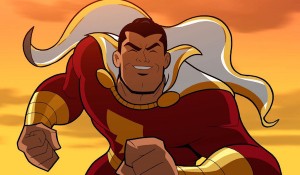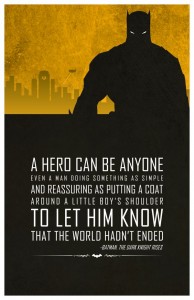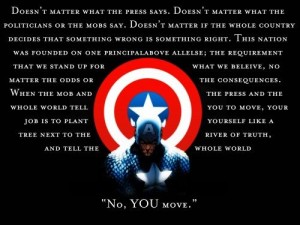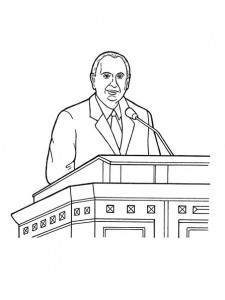The LDS Organization is not opposed to mentioning superheroes in their talks to infantize their audience. The frequently use Marvel and DC heroes of examples of how grown people can be embarrassingly naive.
- From a creepy story about a crippled kid who loves Shazam! who gets manipulated into going onto a mission

- To Speeches implying that kids are cute for praying ridiculous things like Spiderman beating the Green Goblin as opposed to Jesus blessing donuts to strengthen and nourish us, which totally happens

I could share with you many amusing stories about them that show how their understanding is just emerging…And Kevin, in every prayer he offered, prayed that Spiderman would demolish the Green Goblin—only to be interrupted each time by Anna, who would respond with a big sigh and say, “Oh, no! Not again!”
- To using Spiderman underoos as an example of testing the scientific theory, something Mormon speakers are experts at, clearly; or embarrassing grown kids with dreams of child-like pajamas or pointing out that choosing expensive glasses can make you look like Catwoman; a bad thing of course because superficial things like our clothes and how we look matter
- To the threat that if one watches too much Plastic man (Called “Captain Plastic” in the article, but they get Wonder Woman’s name right) one will turn into a TV
- And Female Superheroes?
“…the small, curly headed Wonder Woman who is resting in her mother’s arms with a bottle of warm milk”
- and of course we all know people who love Batman and Superman are sexually active because their heroes are not real heroes
“My class quickly pointed out that in recent movies, even superheroes like Batman and Superman, whom they had wanted to emulate in their childhood, had caved in to current social pressures and had not remained chaste”
- To implying Batman and Superman as a psychological crutch for abusive men, implying that those who love them are not only infantile in their approach to problems but possibly violent
This ideology leads to dangerous behavior. We see people who want to hide their problems under the appearance of strength through boasting, aggressiveness, or abusive behaviors.
Gerald Causse in December of 2013 even went so far as to say:
“God is not the God of superheroes, nor of people without weaknesses.”
Two things:
- It’s pretty clear that general authorities and BYU speakers only view superheroes as childish things that should be put away. If you want to make your fictional character or target of your moral tale seem infantile; just throw in a reference to a major comic book character; because people who believe in talking snakes, super-strong men who avoid barbers, magic handkerchiefs, golden plates and pure gold-hilted swords, and talking asses clearly are the mature ones who know how life works; and people who read stories about a radioactive spider are the childish ones.
- There are no references to Ironman, Thor, Hulk, Daredevil (even when discussing blindness and superheroes), Hawkeye or Blackwidow of the avengers. None of Green Lantern, Martian Manhunter, Aquaman, or others of the Justice League. It’s pretty clear that the speakers are trying to “connect” with the “kids” to seem “hip” and “cool” through the most known cultural references of the genre, rather than knowing anything of the comicbook-world. They latch on to cultural icons not out of respect or understanding the audience, but to immediately use them as a symbol of being naive, immature and frankly, needing “true guidance”
Well, I’d like to propose that superheroes have done more good for the world than the LDS church:
- For example, Superman actually dismantled a cult called the KKK, not in a comic book, but in real life.
- People who dress up as Superheroes make real impacts on kids in hospitals including the Route 29 Batman who sparked a wave of Heroes helping kids recover with happiness placebo effects out-performing priesthood blessings.
(want to donate to a charity? HopeforHenry.org)
- And we shouldn’t forget Batman’s sage wisdom

- But beyond that Comics are, at their core, stories that let us explore issues. Now I know they can be a bit misogynistic in nature (like the LDS church) and give kids the ideas that unrealistic things happen all the time (like the scriptures) and even can promote bad ideas and memes (like firesides and seminary teachers) across generations but they also allow us to explore real issues. Marvel’s Jessica Jones on Netflix is a very deep and serious look at narcistic personality disorder and abusive relationships. Marvel’s Civil War run, before the movie took on civil liberties vs. security issues we faced as a nation.

Now one might say that the LDS church has done more good in food donations than comics, or in BYU scholarships to GA children, or whatever; but I think I need to point out that Comics never murdered 120 pioneers in cold blood, or broke apart families to give Stan Lee 33 wives; most of which were non-consensual relationships, and comics very rarely have promised they were doing good, while really taking widow’s mites and turning them into fancy office furniture for Bob Kane’s successor. Oh DC probably has some nice office furniture, but they are honest about being a revenue center, instead of pretending to do good in the world while really sending people out to do marketing.
Conclusion:
To demonize or infantize comics and people who enjoy them while ignoring their benefits while simultaneously embracing old fabricated stories of wizards, witches, god’s magic, and so forth is not only hypocritical, it is manipulative and harmful. Who knows, with Marvel Movies and DC Blockbusters in the theaters maybe in 30-40 years the LDS church will speak respectfully about Black Panther, Ant-Man or Aquaman and those who love them.
Or maybe the religion will seem more the flat, useless comical representation of infantile belief; while Batman, Superman and Spiderman live on

